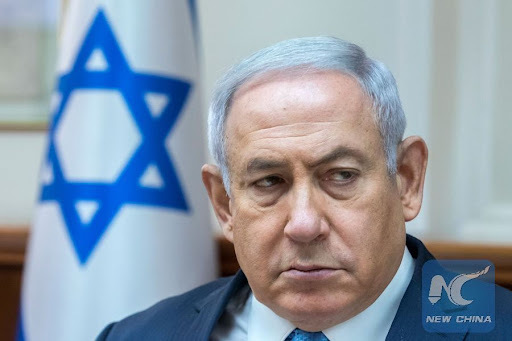Despite restrictions on the Israeli army in Gaza, Netanyahu is moving forward with his plan. According to Israeli and international sources, the Israeli occupation authorities have decided on a ministerial plan to occupy the entire Gaza Strip, which has the support of US President Donald Trump’s administration. The plan will start with a narrower goal — controlling Gaza City — reflecting severe limitations on Israeli resources that will restrict the pace and scope of military operations.
Experts say that after nearly two years of brutal war waged by Israel on Gaza, using all its military arsenal supplied by the US and other Western countries, Israeli occupation forces are exhausted. A large majority of citizens reportedly want an agreement to end the war and free hostages still held by Hamas, according to the Wall Street Journal.
Netanyahu, who was issued an arrest warrant by the International Criminal Court last year as a war criminal, stated on Thursday that Israeli forces will control the entire Gaza Strip, a Palestinian area with about two million residents along the Mediterranean coast, to disarm Hamas and remove it from power. The security cabinet approved the plan, stating the army will start from Gaza City.
The occupation authorities have not specified the operation’s start date, duration, or the number of troops required. Military analysts say it could last weeks or months. Relief organizations are concerned that any attack could further reduce efforts to provide food and medical care to the population. Gaza City is the largest population center in the northern part of the Strip, home to hundreds of thousands of Palestinians. Its dense urban nature, with a network of tunnels used by militants, makes it a difficult battlefield. Some living Israeli hostages are believed to be held there.
Amir Avivi, a former Israeli defense official close to the current government, told American media that rapid progress would require several military teams comprising tens of thousands of soldiers. He added that Israel is likely to choose a more gradual operation putting less pressure on its human forces.
“Israel is trying to find a balance, not by controlling everything but by focusing on a vital area,” he said.
Some analysts say Israel apparently hopes that increased military pressure will bring Hamas back to the negotiating table on its terms and that it can stop the operation at any time. However, it is a big risk given the pressure on the army and the threats to Israel’s international image and internal support. With the threat of full takeover, Israel may have “overextended itself,” according to Yoel Guzansky, a senior fellow at the Institute for National Security Studies in Tel Aviv.
The Israeli occupation army itself has expressed doubts about the idea; according to Israeli media claims, Chief of Staff Eyal Zamir opposed the idea, warning against falling into Hamas traps and the need to give his forces some rest.
Since Netanyahu broke the ceasefire that had held by all standards on March 18, Israel has controlled about 75% of the Gaza Strip, and parts of Gaza City are already under its control. On Thursday, the occupation army ordered the evacuation of two more neighborhoods — Al-Daraj and Al-Tuffah — in response to what it described as rocket launches from those areas.
Israel fought fiercely for several weeks in the north, including Gaza City, in the early months of the war before moving toward what it claimed were Hamas sites in the south.
Israeli officials say manpower shortages are among the main constraints facing Israel, as the occupation army has been waging wars on multiple fronts in Gaza, Lebanon, Syria, and the occupied West Bank for nearly two years. Israeli military leaders say it has become difficult to convince reserve soldiers to participate in new combat tours in Gaza. Their service is not optional, but there is some back and forth in Israel, which tries to accommodate family circumstances or financial pressures, especially given long deployment periods.
In recent weeks, the army withdrew forces from Gaza to give soldiers some rest. Many reservists told the Wall Street Journal last week that they would not return to Gaza if called again. The pressure on soldiers has contributed to declining public support for the war.
According to Israeli sources, opinion polls in Israel for months have shown a large majority of the population supports ending the war in exchange for the release of hostages. A recent poll by the Accord Center at the Hebrew University in Jerusalem found that 79% of Israelis feel ending the war in Gaza is the most urgent national task.
Families of hostages held by Hamas also fear that military operations in areas where people are still held could endanger them.
If Israeli forces penetrate Gaza City, they are likely to order evacuations, increasing the number of displaced people and worsening the humanitarian situation. The United Nations says deaths from hunger and malnutrition are rising.
There have also been deadly incidents near aid distribution sites and convoy routes, where the Israeli army admitted to firing on crowds of Palestinians, claiming they approached its positions too closely.
Israel’s plan risks deepening its international isolation. German Chancellor Friedrich Merz stated on Friday that Germany, a close ally of Israel, will officially suspend arms sales that could be used by Israel in Gaza until further notice, while British Prime Minister Keir Starmer said Israel made a wrong decision to expand the war and pressured it to reconsider.
Arab governments are requesting US help to stop the attack and bring parties back to the negotiating table. President Trump expressed concern about famine but said the decision to control all of Gaza is Israel’s.














Recommended for you
Exhibition City Completes About 80% of Preparations for the Damascus International Fair Launch
Unified Admission Applications Start Tuesday with 640 Students to be Accepted in Medicine
Afghan Energy and Water Minister to Al Jazeera: We Build Dams with Our Own Funds to Combat Drought
Iron Price on Friday 15-8-2025: Ton at 40,000 EGP
Talib Al-Rifai Chronicles Kuwaiti Art Heritage in "Doukhi.. Tasaseem Al-Saba"
Love at First Sight.. Karim Abdel Aziz and Heidi: A Love That Began with a Family Gathering and 20 Years of Marriage